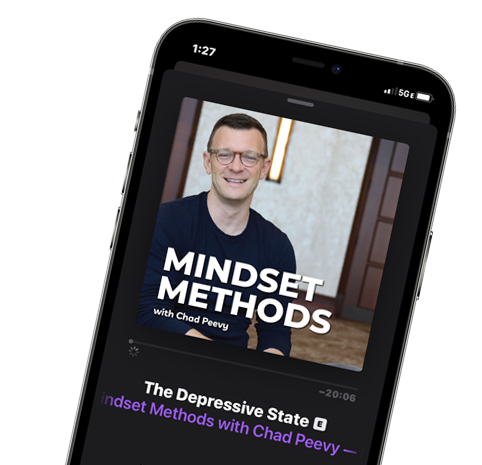REFERENCES
The following works contributed to the research for Break & untangle. As new research emerges on the topics covered in this book, you will find them listed here.
Becker, E. (2007). The denial of death. Simon and Schuster.
Berne, E. (1996). Games People Play: The Basic Handbook of Transactional Analysis. Ballantine Books.
Brenoff, A. (2016, April 28). Early Retirement May Be The Kiss Of Death, Study Finds. HuffPost. https://www.huffpost.com/entry/early-retirement-may-be-the-kiss-of-death-study-finds_n_57221aa3e4b01a5ebde49eff
Bry, A. (1984). Est: Erhard Seminars Training: 60 Hours That Transform Your Life. Avon Books.
Burchard, B. (2017). High Performance Habits: How Extraordinary People Become That Way. Hay House Inc.
Camus, A. (2013). The myth of Sisyphus. Penguin UK.
Chen, A. (2018, June 22). A social psychologist explains why we should ask for help more often. The Verge. https://www.theverge.com/2018/6/22/17475134/heidi-grant-reinforcements-help-social-psychology
Clear, J. (2018). Atomic Habits: An Easy & Proven Way to Build Good Habits & Break Bad Ones. Avery.
Coch, L., & French Jr, J. R. (1948). Overcoming resistance to change. Human relations, 1(4), 512-532
Coelho, Paulo. (2014). The Alchemist. HarperOne.
Covey, S. R. (1991). The seven habits of highly effective people. Provo, UT: Covey Leadership Center.
Csikszentmihalyi, M. (2008). Flow. Harper Perineal Modern Classics.
DePaulo, B. M., & Fisher, J. D. (1980). The costs of asking for help. Basic and Applied Social Psychology, 1(1), 23-35.
Dweck, C. S. (2008). Mindset: The new psychology of success. Random House Digital, Inc..
Eker, H. T. (2005). Secrets of the Millionaire Mind: Mastering the Inner Game of Wealth. Harper Business.
Ellis, A. (1999). How to make yourself happy and remarkably less disturbable. Impact Publishers.
Ellis, B. J., Bianchi, J., Griskevicius, V., & Frankenhuis, W. E. (2017). Beyond risk and protective factors: An adaptation-based approach to resilience. Perspectives on Psychological Science, 12(4), 561-587.
Elrod, H. (2016). Miracle Morning. First.
Frankl, V. E. (1985). Man’s search for meaning. Simon and Schuster.
Goldstein, J. (2016). Mindfulness: A Practical Guide to Awakening (Reprint ed.). Sounds True.
Goswick, R. A., & Jones, W. H. (1982). Components of loneliness during adolescence. Journal of Youth and Adolescence, 11(5), 373-383.
Hansen, M. T., Amabile, T. M., Snook, S. A., & Craig, N. (2018). Purpose, Meaning, and Passion (HBR Emotional Intelligence Series). Harvard Business Press.
Harris, D. (2019). 10% Happier Revised Edition: How I Tamed the Voice in My Head, Reduced Stress Without Losing My Edge, and Found Self-Help That Actually Works–A True Story (Anniversary, Reprint ed.). Dey Street Books.
Hawkins, D. R. (2014). Letting go: The pathway of surrender. Hay House Incorporated.
Heinrich, L. M., & Gullone, E. (2006). The clinical significance of loneliness: A literature review. Clinical psychology review, 26(6), 695-718.
Ho, D. Y. (1995). Selfhood and identity in Confucianism, Taoism, Buddhism, and Hinduism: contrasts with the West. Journal for the theory of social behaviour, 25(2), 115-139.
Holiday, R., & Hanselman, S. (2016). The Daily stoic: 366 Meditations on wisdom, perseverance, and the art of living. Penguin.
Jeffers, S. (2012). Feel the fear and do it anyway. Random House.
Jones, E. E., & Davis, K. E. (1965). From acts to dispositions the attribution process in person perception. In Advances in experimental social psychology (Vol. 2, pp. 219-266). Academic Press.
Keller, G., & Papasan, J. (2013). The one thing: The surprisingly simple truth behind extraordinary results. Bard Press.
Kinder, G. (2012). The seven stages of money maturity: Understanding the spirit and value of money in your life. Dell.
Kohen, A., Langdon, M., & Riches, B. R. (2019). The making of a hero: cultivating empathy, altruism, and heroic imagination. Journal of Humanistic Psychology, 59(4), 617-633.
Kornfield, J. (2009). A path with heart: A guide through the perils and promises of spiritual life. Bantam.
Kornfield, J. (2019, March 12). No Self or True Self? — Identity and Selflessness in Buddhism. Tricycle: The Buddhist Review. https://tricycle.org/magazine/no-self-or-true-self/
Leahy, R. L. (2008). The therapeutic relationship in cognitive-behavioral therapy. Behavioural and Cognitive Psychotherapy, 36(6), 769-777.
Leahy, R. L. (2012). Overcoming resistance in cognitive therapy. Guilford Press.
Lee, F. (1997). When the going gets tough, do the tough ask for help? Help seeking and power motivation in organizations. Organizational Behavior and Human Decision Processes, 72, 336-363.
Maltz, M. (2015). Psycho-Cybernetics: Updated and Expanded (Updated, Expanded ed.). TarcherPerigee.
Martela, F., & Steger, M. F. (2016). The three meanings of meaning in life: Distinguishing coherence, purpose, and significance. The Journal of Positive Psychology, 11(5), 531-545.
McDonald, B. R. K. A. C. (2012, July 23). Do those who retire early live longer? BBC News. https://www.bbc.com/news/magazine-18952037
Michalowicz, M. (2017). Profit First: Transform Your Business from a Cash-eating Monster to a Money-making Machine. Penguin.
Nadler, A. (1983). Personal characteristics and help-seeking. In B. De- Paulo, A. Nadler, & J. Fisher (Eds.), New directions in helping: Vol. 2. Help seeking (pp. 303-340). New York: Academic Press
Nadler, A., Peri, N., & Chemerinski, A. (1985). Effects of opportunity to reciprocate and self‐esteem on help‐seeking behavior. Journal of Personality, 53(1), 23-35.
Nadler, A., Shapira, R., & Ben-Itzhak, S. (1982). Good looks may help: Effects of helper’s physical attractiveness and sex of helper on males’ and females’ help-seeking behavior. Journal of Personality and Social Psychology, 42(1), 90.
Needleman, J. (1994). Money and the Meaning of Life (New edition). Doubleday.
Nemeth, M. (1997). The energy of money. Sounds True.
Newport, C. (2016). Deep work: Rules for focused success in a distracted world. Hachette UK.
Perls, F., Hefferline, R., Goodman, P. (1951). Gestalt Therapy: Excitement and Growth in the Human Personality. The Gestalt Journal Press
Perls, F. S. (1969). Gestalt therapy verbatim.
Perls, F. S. (1969). In and Out the Garbage Pail (Revised edition). Gestalt Journal Press.
Pianalto, M. (2012). Moral courage and facing others. International Journal of Philosophical Studies, 20(2), 165-184.
Robertson, D. (2019). The philosophy of cognitive-behavioural therapy (CBT): Stoic philosophy as rational and cognitive psychotherapy. Routledge.
Robin, V., Dominguez, J., & Tilford, M. (2008). Your money or your life: 9 steps to transforming your relationship with money and achieving financial independence. Penguin.
Roshi, P. K. (1989). The Three Pillars of Zen: Teaching, Practice, and Enlightenment (Revised, Updated, Anniversary ed.). Anchor.
Seligman, M. E. (2004). Authentic happiness: Using the new positive psychology to realize your potential for lasting fulfillment. Simon and Schuster.
Seligman, M. E. (2006). Learned optimism: How to change your mind and your life. Vintage.
Seligman, M. E. (2012). Flourish: A visionary new understanding of happiness and well-being. Simon and Schuster.
Shapiro, E. G. (1983). Embarrassment and help-seeking. In B. DePaulo, A. Nadler, & J. Fisher (Eds.), New directions in helping: Vol. 2. Help seeking (pp. 143-163). New York: Academic Press.
Singer, M. A. (2007). The Untethered Soul: The Journey Beyond Yourself (1st ed.). New Harbinger Publications/ Noetic Books.
Singer, M. A. (2015). The Surrender Experiment: My Journey into Life’s Perfection (Illustrated ed.). Harmony.
Smith, A. (1979). Powers of the Mind. Ballantine Books.
Sokol, L., & Fox, M. G. (2019). The Comprehensive Clinician’s Guide to Cognitive Behavioral Therapy. PESI Publishing & Media.
Stanny, B. (2007). Overcoming Underearning: A Five-step Plan for a Richer Life. Collins.
Tracy, B. (2017). Eat that frog!: 21 great ways to stop procrastinating and get more done in less time. Berrett-Koehler Publishers.
Twist, L., & Barker, T. (2003). The soul of money: Transforming your relationship with money and life. WW Norton & Company.
Wade-Benzoni, K. A. (2002). A golden rule over time: Reciprocity in intergenerational allocation decisions. Academy of Management Journal, 45(5), 1011-1028.
Wade-Benzoni, K., Sondak, H., & Galinsky, A. (2010). Leaving a Legacy: Intergenerational Allocations of Benefits and Burdens. Business Ethics Quarterly, 20(1), 7-34. doi:10.5840/beq20102013
Whorf, B. L., Carroll, J. B., & Chase, S. (2011). Language, Thought, and Reality: Selected Writings of Benjamin Lee Whorf. Martino Fine Books.
You’re Likely to Live Longer If You Retire After 65. (2016b, October 31). Harvard Business Review. https://hbr.org/2016/10/youre-likely-to-live-longer-if-you-retire-after-65



